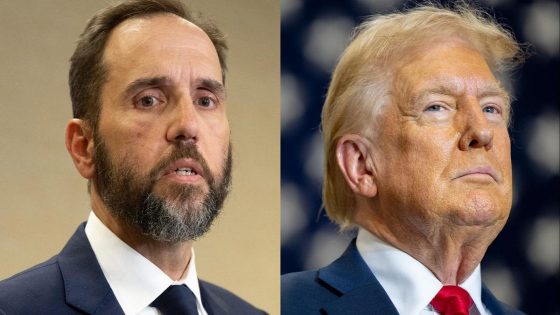Washington — The Supreme Court said Monday it will not step into a dispute involving special counsel Jack Smith’s efforts to obtain records from former President Donald Trump’s account on Twitter, now known as X, and keep the social media company from telling him about the demand for the information.
In turning away the appeal from X, the court leaves intact a lower court decision that upheld a nondisclosure order that said Smith’s request for Trump’s social media records must be kept secret for six months.
The justices have sidestepped another high-profile legal battle arising from the special counsel’s prosecution of the former president for allegedly attempting to subvert the peaceful transfer of power after the 2020 election.
The court’s conservative majority ruled in July that Trump is entitled to some immunity from criminal charges stemming from official acts taken while he was president. Proceedings in the case are continuing before a federal district court in Washington, which is now weighing whether Smith’s slimmed-down allegations in the case against Trump comply with the Supreme Court’s opinion.
X had asked the Supreme Court to consider whether social media companies can be forced to give the government a user’s communications while they’re prohibited from notifying the user about it. In the case of Trump, the company said the nondisclosure order deprived him of the opportunity to assert executive privilege over the material before it was provided to the special counsel. But X said other users such as journalists, doctors or lawyers may want to invoke their own privileges and would not have the chance to.
Trump’s X account
The court fight between Smith and X, owned by billionaire Elon Musk, dates back to January 2023, when the federal government obtained a court-authorized warrant for information associated with Trump’s account, @realDonaldTrump, as part of its election interference probe.
U.S. District Judge Beryl Howell ordered the company, then known as Twitter, to turn over the requested data to Smith. She also prohibited Twitter from disclosing the warrant to anyone for 180 days after determining that the government had grounds to believe that notifying Trump would put its investigation at risk.
Twitter withheld the records while it challenged the nondisclosure order, which the company claimed violated its First Amendment right to communicate with Trump. But Howell ultimately concluded that the order was valid and imposed a $350,000 civil contempt sanction on the company because of its failure to hand over the records on time.
Twitter eventually turned over to Smith 32 direct messages tied to Trump’s account, which prosecutors said was a “miniscule proportion” of the material they sought. The nature of the messages is unknown, including whether they were drafts, sent from Trump’s account or received by the former president. The social media company said it also produced to Smith numerous other data sets.
Musk’s company appealed to the U.S. Court of Appeals for the District of Columbia Circuit, which in July 2023 found the nondisclosure order comported with the First Amendment. While the appeal was pending, the district court allowed Twitter to notify Trump of the warrant.
The dispute between Twitter and Smith played out behind closed doors for several months until the decision by the three-judge panel of judges on the D.C. Circuit was unsealed in August 2023.
Trump had not yet been indicted when the social media company and federal prosecutors went to battle over his records. He was hit with four charges in early August 2023 in what the special counsel claimed was a plot to reverse the outcome of the 2020 presidential election and hold onto power.
But the prosecution was put on hold for months while Trump appealed a district court’s decision finding that he is not entitled to presidential immunity from prosecution. The Supreme Court’s conservative majority ultimately found that the former president cannot be charged for some official acts that took place while he was in the White House, but said unofficial acts are not covered by immunity.
In the wake of the high court’s ruling, a federal grand jury returned a new indictment against Trump that laid out a more narrow set of allegations against him. The federal district court is now holding more proceedings to determine whether Trump’s conduct in the course of the alleged crimes — namely his communications with Vice President Mike Pence — is not subject to immunity, as laid out by the Supreme Court.
Source Agencies

